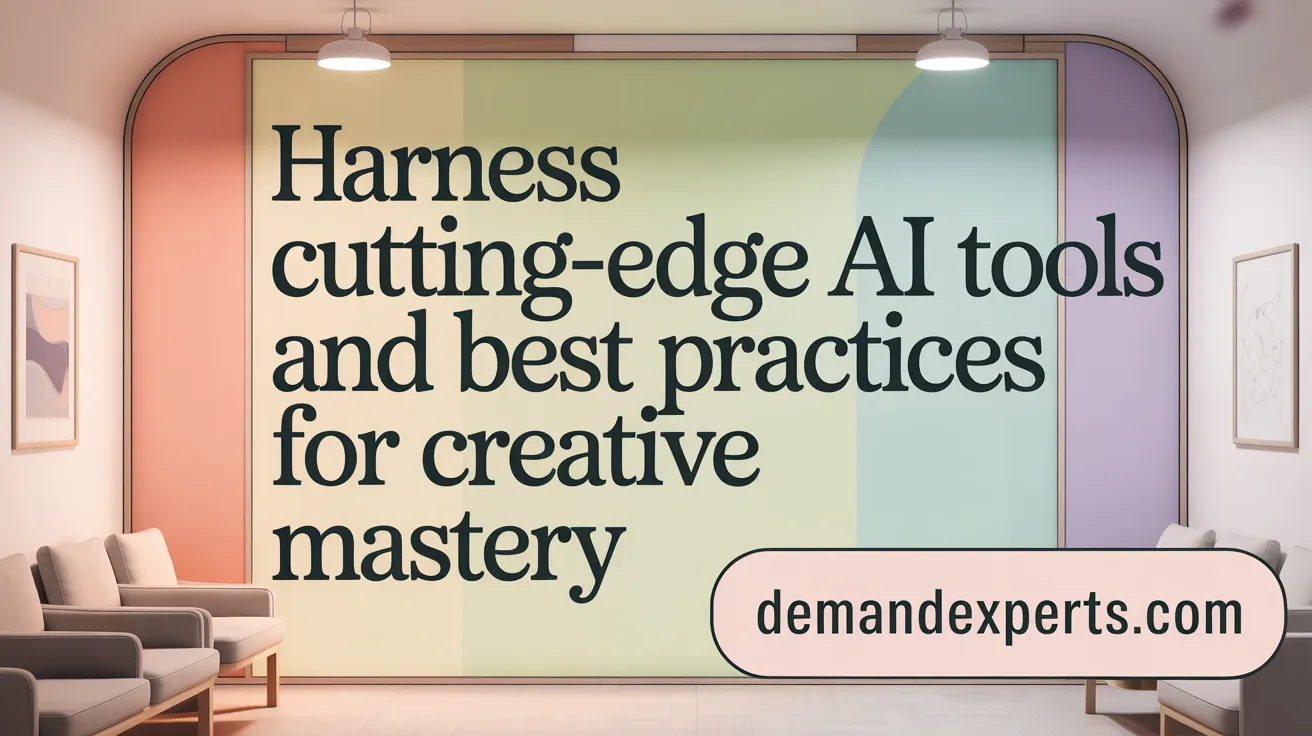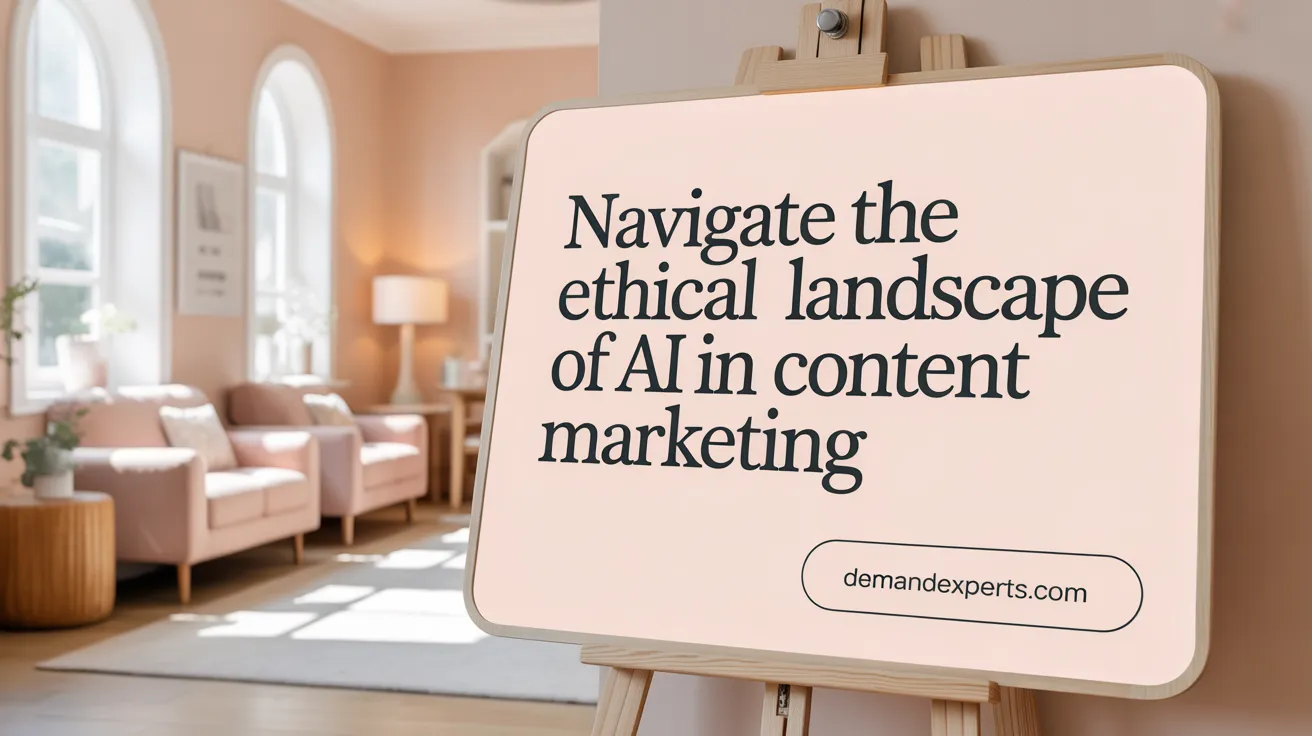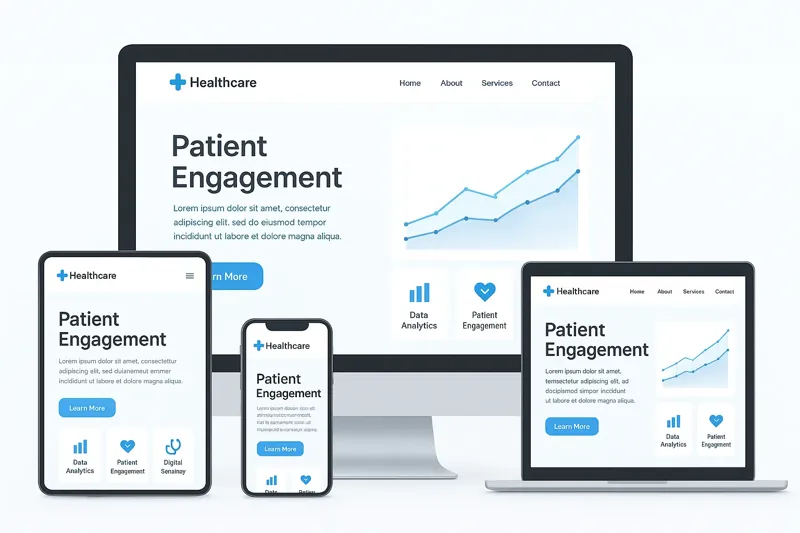Navigating the AI-Driven Content Marketing Landscape
As artificial intelligence reshapes industries worldwide, content marketing stands at the forefront of this transformation. AI's rapid advancements are poised to redefine how brands create, personalize, distribute, and measure content, igniting innovations previously unimaginable. This article explores the future trends, strategic shifts, ethical considerations, and emerging roles defining the AI era of content marketing, offering a comprehensive understanding of what lies ahead for marketers and brands.
Emerging Trends and Developments Shaping Content Marketing through AI
What future trends and developments in content marketing are driven by AI advancements?
Artificial intelligence is positioned to revolutionize content marketing in the coming years. One major trend is the rise of hyper-personalized, context-aware content delivery. AI systems analyze vast amounts of customer data in real time to tailor content that matches individual preferences, behaviors, and purchase intent, creating highly relevant experiences at scale.
Generative AI tools are expanding rapidly across multiple formats, enabling rapid production of articles, social media posts, visuals, videos, and even immersive experiences such as AR and VR. This acceleration allows brands to maintain a consistent flow of high-quality, unique content customized for different platforms and audience segments.
Predictive analytics, powered by machine learning, will become essential for campaign optimization. These tools forecast trends, anticipate customer needs, and inform strategic decisions, helping marketers proactively adjust their tactics for maximum engagement and return on investment.
Further innovations include AI-powered chatbots, autonomous AI agents, and immersive technologies like augmented reality and virtual reality. These advances facilitate continuous, personalized customer interactions, fostering deeper engagement outside traditional channels.
The integration of real-time data feedback loops will be crucial for agile decision-making. Marketers will be able to react instantly to changing consumer behaviors and market conditions, ensuring campaigns stay relevant and impactful.
However, these developments also present challenges—privacy concerns and data fragmentation need to be addressed to ensure responsible AI use. As data privacy regulations tighten, organizations must find innovative ways to harness AI’s power while maintaining transparency and compliance.
Automation of routine marketing tasks, such as content creation, distribution, and analytics, will free up human resources for strategic and creative work. This evolution will shift customer engagement models towards more interactive, personalized, and data-driven approaches.
Overall, AI’s continued progress will ensure that content marketing becomes more efficient, targeted, and innovative, giving brands a competitive edge in an increasingly digital world.
Strategic Implications of AI in Content Marketing Practices and Industry Evolution
 AI is transforming how content marketing is strategized and executed, with profound impacts shaping industry evolution. One of the most notable changes is the enhancement of hyper-personalization. By analyzing detailed customer behavior and preferences through behavioral analytics, AI enables brands to deliver highly targeted, relevant content. This not only boosts engagement but also fosters deeper customer relationships.
AI is transforming how content marketing is strategized and executed, with profound impacts shaping industry evolution. One of the most notable changes is the enhancement of hyper-personalization. By analyzing detailed customer behavior and preferences through behavioral analytics, AI enables brands to deliver highly targeted, relevant content. This not only boosts engagement but also fosters deeper customer relationships.
Automation plays a crucial role in streamlining processes. AI automates routine tasks such as content creation, SEO optimization, and content distribution, freeing up valuable human resources for strategic decision-making and creative endeavors. Predictive analytics further enhance this efficiency by providing insights into customer segmentation, trend forecasting, and real-time campaign adjustments, leading to improved targeting and campaign performance.
Generative AI models expand creative possibilities by supporting the development of diverse content formats, including text, images, and videos. This facilitates innovative campaigns that maintain brand consistency and relevance across multiple channels. As a result, marketing strategies are becoming more dynamic and data-driven.
Nevertheless, these technological advancements pose ethical challenges. Concerns around data privacy, algorithm bias, misinformation, and transparency demand responsible AI practices. The industry must respond by establishing clear ethical guidelines, investing in AI literacy, and implementing responsible AI policies.
To stay competitive, organizations must prioritize skill development and collaborate with data teams to build technical expertise. These efforts are essential for navigating ethical complexities and leveraging AI effectively.
Overall, AI’s integration into content marketing signifies a shift toward a more sophisticated, efficient, and ethical industry landscape. Continuous adaptation and responsible innovation will dictate the ongoing transformation of marketing practices and industry standards.
AI-Powered Content Generation: Current Landscape and Future Prospects
What is the future of AI content generation?
AI-driven content creation is rapidly evolving and is expected to become even more sophisticated by 2025. Advances in generative AI models, like GPT-4 and newer tools, aim to produce highly personalized, context-aware content that resonates more deeply with audiences. These technologies will enable marketers to generate a wide array of formats—text, visuals, videos—and tailor them in real time to fit different platforms and user preferences.
While AI will handle significant portions of content production, human creativity and emotional intelligence will remain essential. Machines may excel at creating data-driven, scalable content quickly, but understanding nuanced human emotions and cultural subtleties still requires human insight. This complementary relationship will help brands maintain authenticity and deeper engagement.
However, challenges such as content saturation and authenticity issues are notable. Excessive reliance on AI can lead to similar, generic content that lacks originality. Ethical concerns—like transparency, bias mitigation, and misinformation—must be addressed as AI tools become more ingrained.
Overall, the future of AI in content generation looks promising, with continuous improvements making these tools smarter and more capable. In this landscape, AI will serve as a powerful partner, augmenting human ingenuity rather than replacing it, thus expanding creative horizons while raising important ethical considerations.
Leveraging Emerging AI Tools, Frameworks, and Best Practices in Content Marketing

What emerging tools, frameworks, and best practices incorporate AI in content marketing?
In 2025, the landscape of content marketing is heavily shaped by innovative AI tools and strategies designed to enhance creativity, efficiency, and personalization. Prominent generative AI platforms like ChatGPT, Jasper, and Google Gemini are at the forefront. These tools enable marketers to generate high-quality content rapidly, assist in creative ideation, and analyze real-time consumer data to tailor messaging.
Analytics frameworks such as Adobe Sensei, Surfer SEO, and the Google Marketing Platform empower marketers to optimize search engine activity, forecast trends, and improve audience segmentation. These platforms leverage artificial intelligence to uncover insights from massive datasets, allowing for predictive and prescriptive marketing strategies.
Automation is also vital in streamlining campaign management, lead scoring, and workflow processes. Tools like HubSpot, Pipedrive, and Zapier automate routine tasks, reducing manual effort and freeing teams for strategic activities.
Best practices stress the importance of synergizing AI’s capabilities with human creativity. Ethical AI use, including transparency, respecting data privacy, and avoiding biases, is fundamental to maintaining trust and compliance. Building internal AI expertise through continuous upskilling ensures marketing teams stay competitive.
These AI-driven tools and frameworks facilitate hyper-personalized, data-informed marketing strategies that can scale efficiently, ultimately transforming how brands engage with their audiences and stand out in crowded digital spaces.
| Tool/Framework | Focus Area | Description |
|---|---|---|
| ChatGPT, Jasper, Google Gemini | Content creation and ideation | Generate high-quality text, ideas, and insights rapidly |
| Adobe Sensei, Surfer SEO, Google Marketing Platform | Data analysis and optimization | Enhance SEO, forecast trends, personalize content |
| HubSpot, Pipedrive, Zapier | Campaign automation and workflows | Automate campaign management, lead scoring, streamline operations |
The integration of these tools, guided by ethical standards and human oversight, positions content marketing for a future driven by innovation, agility, and personalized customer experiences.
Ethical Challenges and Considerations in AI-Driven Content Marketing

What ethical considerations and challenges arise in AI-powered content marketing?
AI in content marketing offers numerous advantages, such as personalized messaging and efficient data analysis. However, it also presents significant ethical challenges that organizations must navigate.
One major concern involves data privacy and security. As AI systems rely heavily on personal information to tailor content, compliance with regulations like GDPR in Europe and CCPA in California is critical. Companies must ensure they collect, process, and store data responsibly, safeguarding consumer rights.
Bias and discrimination embedded within AI algorithms pose another challenge. These biases can lead to unfair treatment or exclusion of certain groups. To mitigate this, organizations should use diverse datasets, implement fairness constraints, and conduct regular bias audits to promote inclusiveness.
Transparency is vital to building trust. Businesses need to openly disclose when content is AI-generated and clearly explain how AI systems make decisions. This honesty helps consumers understand and trust the digital content they engage with.
Accountability and responsible governance form the backbone of ethical AI use. Establishing governance frameworks ensures oversight, responsible deployment, and adherence to ethical standards. Continuous monitoring helps detect and address any unintended consequences or harmful content.
Avoiding misinformation is essential to maintain consumer trust. AI can inadvertently produce or amplify false information, so content verification processes must be in place.
In summary, addressing these ethical challenges involves creating comprehensive frameworks that prioritize transparency, fairness, and accountability. Companies that embed responsible AI practices will foster stronger consumer trust and uphold their brand integrity in an evolving digital landscape.
Innovative Roles Shaping the AI Content Marketing Ecosystem: Content QA and Prompt Engineers
What is the role of new positions like Content QA and Prompt Engineers in the evolving AI content marketing landscape?
As AI technology becomes central to content creation, new professional roles are emerging to ensure quality, authenticity, and strategic effectiveness. Content Quality Assurance (QA) specialists are tasked with verifying that AI-generated content aligns with brand standards, maintains factual accuracy, and upholds ethical guidelines such as data privacy and transparency. They review outputs for originality and consistency, ensuring that automated content meets human standards.
Prompt Engineers are responsible for designing, testing, and refining prompts that guide AI systems to produce targeted, relevant, and engaging content. This role requires a blend of technical expertise, linguistic skills, and ethical awareness. Prompt engineers develop complex, multi-layered prompts that enable AI models to generate content across different formats and personalization levels, optimizing results for marketing campaigns.
These positions are vital in advancing multi-layered, automated, and personalized content creation. By fine-tuning AI outputs, they help marketers produce high-quality content at scale without sacrificing authenticity or brand voice. Their work also supports evolving strategies like hyper-targeted campaigns, real-time customer engagement, and predictive trend analysis.
In fostering these roles, marketing teams can innovate creatively while maintaining the integrity of their messaging.
Overall, Content QA specialists and Prompt Engineers enhance the efficiency and sophistication of AI-driven marketing, giving brands a strategic edge. They facilitate a more automated and personalized content ecosystem that keeps organizations competitive in the fast-changing digital environment.
To learn more about their contributions, search for "Roles of Content QA and Prompt Engineers in AI marketing".
Evolving Content Marketing Strategies and Metrics in the AI Landscape
What are the predictions for content marketing strategies and metrics in the AI era?
In the AI era, content marketing is transforming significantly. Marketers now rely heavily on sophisticated AI tools and data analytics to better understand audience preferences, identify content gaps, and craft highly personalized messaging. Unlike traditional SEO, which focused mainly on keywords and rankings, strategies are shifting toward leveraging social media, voice search, and community engagement as primary channels for content dissemination.
The IDEAL framework remains a steady guide, emphasizing the importance of:
- Clear goals for brand messaging and engagement
- Authentic voices that build trust and credibility
- Multi-platform adaptability to reach audiences across diverse channels
Video content continues to dominate due to its flexible format and high engagement potential. It supports multiple forms—short clips, live streams, and interactive features—across social, mobile, and web platforms.
Furthermore, continuous analysis of real-time data through AI-driven insights allows marketers to refine their strategies iteratively. Campaigns are constantly optimized based on user interactions, platform performance, and market trend shifts. These metrics encompass traditional KPIs and emerging ones such as AI citation frequency, branded search volume, engagement rates, and social shares.
Striking the right balance between authenticity and AI-enabled personalization remains crucial. While AI provides tailored experiences, brands must uphold genuine voice and transparency to foster trust. This ongoing, data-informed approach ensures content strategies are dynamic, trustworthy, and aligned with consumer expectations, setting the stage for long-term success in the evolving digital landscape.
Unlocking Future Opportunities and Innovation Areas with AI in Content Marketing
 Artificial intelligence is poised to revolutionize content marketing further by enabling brands to deliver highly personalized experiences based on real-time consumer data analysis. As AI systems advance, they can monitor customer interactions continuously, allowing marketers to tailor content dynamically to individual preferences, behaviors, and engagement patterns.
Artificial intelligence is poised to revolutionize content marketing further by enabling brands to deliver highly personalized experiences based on real-time consumer data analysis. As AI systems advance, they can monitor customer interactions continuously, allowing marketers to tailor content dynamically to individual preferences, behaviors, and engagement patterns.
Scalable content creation across multiple formats—such as text, images, videos, and interactive media—becomes more feasible with generative AI technologies. These tools can rapidly produce tailored content at scale, ensuring relevance and freshness without compromising quality.
Predictive analytics and automation are transforming how campaigns are planned and executed. AI-powered insights forecast market trends, consumer behaviors, and content performance, enabling marketers to make data-driven decisions swiftly. Automated content distribution and campaign adjustments help maximize reach and ROI, all while reducing manual effort.
Generative AI opens new frontiers for creative storytelling. By crafting unique narratives, visuals, and multimedia content, AI encourages innovative approaches that engage audiences in fresh ways. This blending of human creativity and machine-generated content fosters compelling brand experiences.
Addressing ethical challenges is crucial for maintaining trust. Future initiatives focus on enhancing transparency, ensuring data privacy, mitigating bias, and upholding authenticity. Responsible AI use not only builds consumer confidence but also adheres to regulatory standards.
Overall, AI’s evolving landscape offers transformative potential for content marketing. It supports more strategic, efficient, and inventive marketing practices, empowering brands to connect deeper with audiences, experiment with novel storytelling formats, and stay ahead in a competitive digital environment.
Charting a Human-Centric AI Future in Content Marketing
The future of content marketing is unmistakably intertwined with the advancing capabilities of artificial intelligence. From hyper-personalization and predictive analytics to generative content and new specialized roles, AI is reshaping how brands engage consumers and measure success. Yet, this transformative journey hinges on balancing automation with authentic human creativity, ethical vigilance, and transparent practices. Marketers who embrace agile innovation, invest in upskilling, and foster responsible AI adoption will unlock unprecedented opportunities to craft meaningful, resonant, and impactful content experiences. As AI becomes an indispensable partner, the future promises a dynamic, data-informed, and ethical content marketing ecosystem that elevates both brands and customers alike.
References
- AI Will Shape the Future of Marketing
- Artificial Intelligence And The Future Of Content Marketing - Forbes
- The future of marketing in the era of AI: 2025 outlook - OWDT
- AI and Content Marketing: The Big Reality Check of 2024
- Building a Smarter Digital Strategy for the AI Era - Acquia
- The future content creation and production with generative AI
- Content Marketing Trends for 2025: AI & Its Role in ... - Creaitor
Navigating the AI-Driven Content Marketing Landscape
As artificial intelligence reshapes industries worldwide, content marketing stands at the forefront of this transformation. AI's rapid advancements are poised to redefine how brands create, personalize, distribute, and measure content, igniting innovations previously unimaginable. This article explores the future trends, strategic shifts, ethical considerations, and emerging roles defining the AI era of content marketing, offering a comprehensive understanding of what lies ahead for marketers and brands.
Emerging Trends and Developments Shaping Content Marketing through AI
What future trends and developments in content marketing are driven by AI advancements?
Artificial intelligence is positioned to revolutionize content marketing in the coming years. One major trend is the rise of hyper-personalized, context-aware content delivery. AI systems analyze vast amounts of customer data in real time to tailor content that matches individual preferences, behaviors, and purchase intent, creating highly relevant experiences at scale.
Generative AI tools are expanding rapidly across multiple formats, enabling rapid production of articles, social media posts, visuals, videos, and even immersive experiences such as AR and VR. This acceleration allows brands to maintain a consistent flow of high-quality, unique content customized for different platforms and audience segments.
Predictive analytics, powered by machine learning, will become essential for campaign optimization. These tools forecast trends, anticipate customer needs, and inform strategic decisions, helping marketers proactively adjust their tactics for maximum engagement and return on investment.
Further innovations include AI-powered chatbots, autonomous AI agents, and immersive technologies like augmented reality and virtual reality. These advances facilitate continuous, personalized customer interactions, fostering deeper engagement outside traditional channels.
The integration of real-time data feedback loops will be crucial for agile decision-making. Marketers will be able to react instantly to changing consumer behaviors and market conditions, ensuring campaigns stay relevant and impactful.
However, these developments also present challenges—privacy concerns and data fragmentation need to be addressed to ensure responsible AI use. As data privacy regulations tighten, organizations must find innovative ways to harness AI’s power while maintaining transparency and compliance.
Automation of routine marketing tasks, such as content creation, distribution, and analytics, will free up human resources for strategic and creative work. This evolution will shift customer engagement models towards more interactive, personalized, and data-driven approaches.
Overall, AI’s continued progress will ensure that content marketing becomes more efficient, targeted, and innovative, giving brands a competitive edge in an increasingly digital world.
Strategic Implications of AI in Content Marketing Practices and Industry Evolution
 AI is transforming how content marketing is strategized and executed, with profound impacts shaping industry evolution. One of the most notable changes is the enhancement of hyper-personalization. By analyzing detailed customer behavior and preferences through behavioral analytics, AI enables brands to deliver highly targeted, relevant content. This not only boosts engagement but also fosters deeper customer relationships.
AI is transforming how content marketing is strategized and executed, with profound impacts shaping industry evolution. One of the most notable changes is the enhancement of hyper-personalization. By analyzing detailed customer behavior and preferences through behavioral analytics, AI enables brands to deliver highly targeted, relevant content. This not only boosts engagement but also fosters deeper customer relationships.
Automation plays a crucial role in streamlining processes. AI automates routine tasks such as content creation, SEO optimization, and content distribution, freeing up valuable human resources for strategic decision-making and creative endeavors. Predictive analytics further enhance this efficiency by providing insights into customer segmentation, trend forecasting, and real-time campaign adjustments, leading to improved targeting and campaign performance.
Generative AI models expand creative possibilities by supporting the development of diverse content formats, including text, images, and videos. This facilitates innovative campaigns that maintain brand consistency and relevance across multiple channels. As a result, marketing strategies are becoming more dynamic and data-driven.
Nevertheless, these technological advancements pose ethical challenges. Concerns around data privacy, algorithm bias, misinformation, and transparency demand responsible AI practices. The industry must respond by establishing clear ethical guidelines, investing in AI literacy, and implementing responsible AI policies.
To stay competitive, organizations must prioritize skill development and collaborate with data teams to build technical expertise. These efforts are essential for navigating ethical complexities and leveraging AI effectively.
Overall, AI’s integration into content marketing signifies a shift toward a more sophisticated, efficient, and ethical industry landscape. Continuous adaptation and responsible innovation will dictate the ongoing transformation of marketing practices and industry standards.
AI-Powered Content Generation: Current Landscape and Future Prospects
What is the future of AI content generation?
AI-driven content creation is rapidly evolving and is expected to become even more sophisticated by 2025. Advances in generative AI models, like GPT-4 and newer tools, aim to produce highly personalized, context-aware content that resonates more deeply with audiences. These technologies will enable marketers to generate a wide array of formats—text, visuals, videos—and tailor them in real time to fit different platforms and user preferences.
While AI will handle significant portions of content production, human creativity and emotional intelligence will remain essential. Machines may excel at creating data-driven, scalable content quickly, but understanding nuanced human emotions and cultural subtleties still requires human insight. This complementary relationship will help brands maintain authenticity and deeper engagement.
However, challenges such as content saturation and authenticity issues are notable. Excessive reliance on AI can lead to similar, generic content that lacks originality. Ethical concerns—like transparency, bias mitigation, and misinformation—must be addressed as AI tools become more ingrained.
Overall, the future of AI in content generation looks promising, with continuous improvements making these tools smarter and more capable. In this landscape, AI will serve as a powerful partner, augmenting human ingenuity rather than replacing it, thus expanding creative horizons while raising important ethical considerations.
Leveraging Emerging AI Tools, Frameworks, and Best Practices in Content Marketing

What emerging tools, frameworks, and best practices incorporate AI in content marketing?
In 2025, the landscape of content marketing is heavily shaped by innovative AI tools and strategies designed to enhance creativity, efficiency, and personalization. Prominent generative AI platforms like ChatGPT, Jasper, and Google Gemini are at the forefront. These tools enable marketers to generate high-quality content rapidly, assist in creative ideation, and analyze real-time consumer data to tailor messaging.
Analytics frameworks such as Adobe Sensei, Surfer SEO, and the Google Marketing Platform empower marketers to optimize search engine activity, forecast trends, and improve audience segmentation. These platforms leverage artificial intelligence to uncover insights from massive datasets, allowing for predictive and prescriptive marketing strategies.
Automation is also vital in streamlining campaign management, lead scoring, and workflow processes. Tools like HubSpot, Pipedrive, and Zapier automate routine tasks, reducing manual effort and freeing teams for strategic activities.
Best practices stress the importance of synergizing AI’s capabilities with human creativity. Ethical AI use, including transparency, respecting data privacy, and avoiding biases, is fundamental to maintaining trust and compliance. Building internal AI expertise through continuous upskilling ensures marketing teams stay competitive.
These AI-driven tools and frameworks facilitate hyper-personalized, data-informed marketing strategies that can scale efficiently, ultimately transforming how brands engage with their audiences and stand out in crowded digital spaces.
| Tool/Framework | Focus Area | Description |
|---|---|---|
| ChatGPT, Jasper, Google Gemini | Content creation and ideation | Generate high-quality text, ideas, and insights rapidly |
| Adobe Sensei, Surfer SEO, Google Marketing Platform | Data analysis and optimization | Enhance SEO, forecast trends, personalize content |
| HubSpot, Pipedrive, Zapier | Campaign automation and workflows | Automate campaign management, lead scoring, streamline operations |
The integration of these tools, guided by ethical standards and human oversight, positions content marketing for a future driven by innovation, agility, and personalized customer experiences.
Ethical Challenges and Considerations in AI-Driven Content Marketing

What ethical considerations and challenges arise in AI-powered content marketing?
AI in content marketing offers numerous advantages, such as personalized messaging and efficient data analysis. However, it also presents significant ethical challenges that organizations must navigate.
One major concern involves data privacy and security. As AI systems rely heavily on personal information to tailor content, compliance with regulations like GDPR in Europe and CCPA in California is critical. Companies must ensure they collect, process, and store data responsibly, safeguarding consumer rights.
Bias and discrimination embedded within AI algorithms pose another challenge. These biases can lead to unfair treatment or exclusion of certain groups. To mitigate this, organizations should use diverse datasets, implement fairness constraints, and conduct regular bias audits to promote inclusiveness.
Transparency is vital to building trust. Businesses need to openly disclose when content is AI-generated and clearly explain how AI systems make decisions. This honesty helps consumers understand and trust the digital content they engage with.
Accountability and responsible governance form the backbone of ethical AI use. Establishing governance frameworks ensures oversight, responsible deployment, and adherence to ethical standards. Continuous monitoring helps detect and address any unintended consequences or harmful content.
Avoiding misinformation is essential to maintain consumer trust. AI can inadvertently produce or amplify false information, so content verification processes must be in place.
In summary, addressing these ethical challenges involves creating comprehensive frameworks that prioritize transparency, fairness, and accountability. Companies that embed responsible AI practices will foster stronger consumer trust and uphold their brand integrity in an evolving digital landscape.
Innovative Roles Shaping the AI Content Marketing Ecosystem: Content QA and Prompt Engineers
What is the role of new positions like Content QA and Prompt Engineers in the evolving AI content marketing landscape?
As AI technology becomes central to content creation, new professional roles are emerging to ensure quality, authenticity, and strategic effectiveness. Content Quality Assurance (QA) specialists are tasked with verifying that AI-generated content aligns with brand standards, maintains factual accuracy, and upholds ethical guidelines such as data privacy and transparency. They review outputs for originality and consistency, ensuring that automated content meets human standards.
Prompt Engineers are responsible for designing, testing, and refining prompts that guide AI systems to produce targeted, relevant, and engaging content. This role requires a blend of technical expertise, linguistic skills, and ethical awareness. Prompt engineers develop complex, multi-layered prompts that enable AI models to generate content across different formats and personalization levels, optimizing results for marketing campaigns.
These positions are vital in advancing multi-layered, automated, and personalized content creation. By fine-tuning AI outputs, they help marketers produce high-quality content at scale without sacrificing authenticity or brand voice. Their work also supports evolving strategies like hyper-targeted campaigns, real-time customer engagement, and predictive trend analysis.
In fostering these roles, marketing teams can innovate creatively while maintaining the integrity of their messaging.
Overall, Content QA specialists and Prompt Engineers enhance the efficiency and sophistication of AI-driven marketing, giving brands a strategic edge. They facilitate a more automated and personalized content ecosystem that keeps organizations competitive in the fast-changing digital environment.
To learn more about their contributions, search for "Roles of Content QA and Prompt Engineers in AI marketing".
Evolving Content Marketing Strategies and Metrics in the AI Landscape
What are the predictions for content marketing strategies and metrics in the AI era?
In the AI era, content marketing is transforming significantly. Marketers now rely heavily on sophisticated AI tools and data analytics to better understand audience preferences, identify content gaps, and craft highly personalized messaging. Unlike traditional SEO, which focused mainly on keywords and rankings, strategies are shifting toward leveraging social media, voice search, and community engagement as primary channels for content dissemination.
The IDEAL framework remains a steady guide, emphasizing the importance of:
- Clear goals for brand messaging and engagement
- Authentic voices that build trust and credibility
- Multi-platform adaptability to reach audiences across diverse channels
Video content continues to dominate due to its flexible format and high engagement potential. It supports multiple forms—short clips, live streams, and interactive features—across social, mobile, and web platforms.
Furthermore, continuous analysis of real-time data through AI-driven insights allows marketers to refine their strategies iteratively. Campaigns are constantly optimized based on user interactions, platform performance, and market trend shifts. These metrics encompass traditional KPIs and emerging ones such as AI citation frequency, branded search volume, engagement rates, and social shares.
Striking the right balance between authenticity and AI-enabled personalization remains crucial. While AI provides tailored experiences, brands must uphold genuine voice and transparency to foster trust. This ongoing, data-informed approach ensures content strategies are dynamic, trustworthy, and aligned with consumer expectations, setting the stage for long-term success in the evolving digital landscape.
Unlocking Future Opportunities and Innovation Areas with AI in Content Marketing
 Artificial intelligence is poised to revolutionize content marketing further by enabling brands to deliver highly personalized experiences based on real-time consumer data analysis. As AI systems advance, they can monitor customer interactions continuously, allowing marketers to tailor content dynamically to individual preferences, behaviors, and engagement patterns.
Artificial intelligence is poised to revolutionize content marketing further by enabling brands to deliver highly personalized experiences based on real-time consumer data analysis. As AI systems advance, they can monitor customer interactions continuously, allowing marketers to tailor content dynamically to individual preferences, behaviors, and engagement patterns.
Scalable content creation across multiple formats—such as text, images, videos, and interactive media—becomes more feasible with generative AI technologies. These tools can rapidly produce tailored content at scale, ensuring relevance and freshness without compromising quality.
Predictive analytics and automation are transforming how campaigns are planned and executed. AI-powered insights forecast market trends, consumer behaviors, and content performance, enabling marketers to make data-driven decisions swiftly. Automated content distribution and campaign adjustments help maximize reach and ROI, all while reducing manual effort.
Generative AI opens new frontiers for creative storytelling. By crafting unique narratives, visuals, and multimedia content, AI encourages innovative approaches that engage audiences in fresh ways. This blending of human creativity and machine-generated content fosters compelling brand experiences.
Addressing ethical challenges is crucial for maintaining trust. Future initiatives focus on enhancing transparency, ensuring data privacy, mitigating bias, and upholding authenticity. Responsible AI use not only builds consumer confidence but also adheres to regulatory standards.
Overall, AI’s evolving landscape offers transformative potential for content marketing. It supports more strategic, efficient, and inventive marketing practices, empowering brands to connect deeper with audiences, experiment with novel storytelling formats, and stay ahead in a competitive digital environment.
Charting a Human-Centric AI Future in Content Marketing
The future of content marketing is unmistakably intertwined with the advancing capabilities of artificial intelligence. From hyper-personalization and predictive analytics to generative content and new specialized roles, AI is reshaping how brands engage consumers and measure success. Yet, this transformative journey hinges on balancing automation with authentic human creativity, ethical vigilance, and transparent practices. Marketers who embrace agile innovation, invest in upskilling, and foster responsible AI adoption will unlock unprecedented opportunities to craft meaningful, resonant, and impactful content experiences. As AI becomes an indispensable partner, the future promises a dynamic, data-informed, and ethical content marketing ecosystem that elevates both brands and customers alike.
References
- AI Will Shape the Future of Marketing
- Artificial Intelligence And The Future Of Content Marketing - Forbes
- The future of marketing in the era of AI: 2025 outlook - OWDT
- AI and Content Marketing: The Big Reality Check of 2024
- Building a Smarter Digital Strategy for the AI Era - Acquia
- The future content creation and production with generative AI
- Content Marketing Trends for 2025: AI & Its Role in ... - Creaitor






